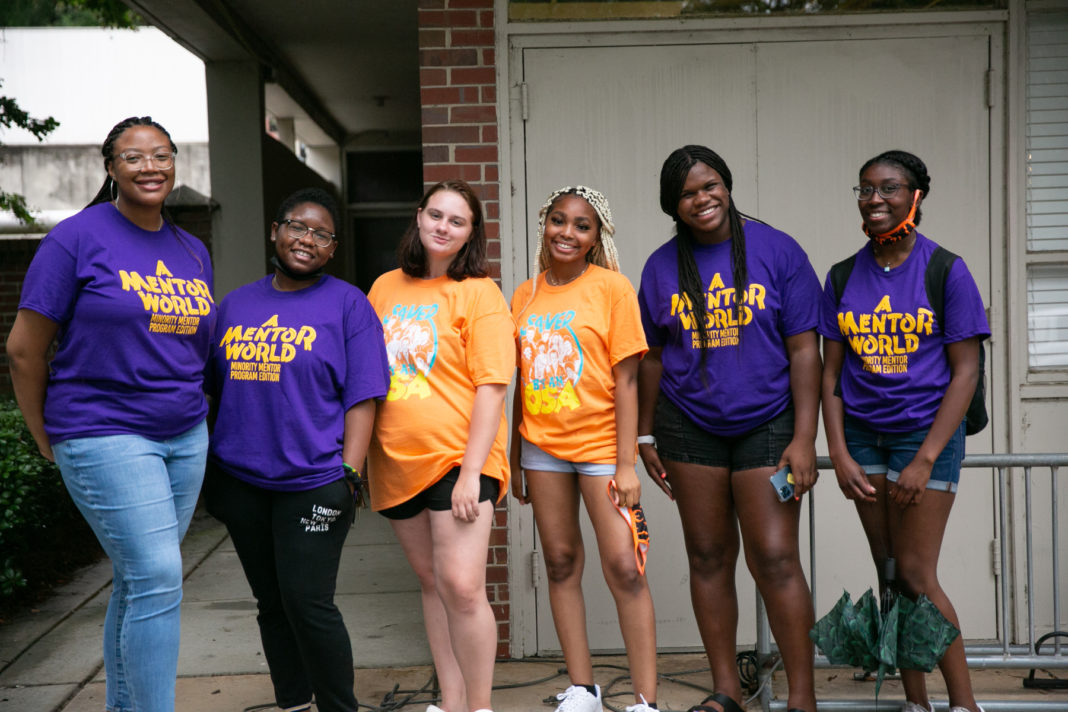When Jamea Harris graduates from Mercer University in May, she’ll be the first in her family to earn a college degree.
“It’s a really exciting moment. Now that I’ve just submitted my graduation application, all of my family, they’re just so excited,” she said. “They’re like, ‘Oh my gosh, no one’s ever done this before!’”
Harris, a public health major, said Mercer’s Opportunity Scholars program and Minority Mentor Program have been a great help along the way.
“Throughout school I learned a lot from the program,” she said, noting Opportunity Scholars made her aware of scholarship and study abroad opportunities. “I had a really good mentor that I still talk to.”
On Nov. 8, Opportunity Scholars and the Minority Mentor Program will celebrate students like Harris as part of the National First-Generation College Celebration. The annual event celebrates students, faculty and staff who are pioneers in their families by completing a college degree.
“The focus is just to bring light to the fact that there are so many students who are blazing trails and setting legacies for their families in graduating for the first time,” said Nicole Small, assistant director of Student Support Services at Mercer.
The event will include hosting a table from 10 a.m.-2 p.m. in the Connell Student Center and an alumni panel from 6-7 p.m. in the Godsey Science Center.
First-generation college students make up 13% of this year’s freshman class. These students face many of the same challenges as their peers, but “they may not have the support system to know who to seek out when the time comes, or they may not have had anyone who’s been through this process before, so they don’t have any guidance on what to look for or who should be mentoring them,” Small said.
In addition, first-generation students may feel like they carry extra responsibility because they are the first in their family to go to college, said Danae Brunner, a counselor with Student Support Services.
“There’s a lot of weight that they carry. Failure can take precedence beyond their success in a lot of instances,” she said. “There’s an understanding that if they fail, they are failing their family. Whereas, if they succeed, it doesn’t just feel like a success for their family. It feels like they are leaving their family behind.”
Opportunity Scholars is a TRIO program funded by the U.S. Department of Education that helps first-generation college students succeed by providing for the students’ academic, cultural and community needs. This includes a pre-orientation summer activity; personal, academic and financial aid counseling; mentoring; tutoring; cultural activities; and help with admission to graduate and professional schools.
At Mercer, the program serves 140 students annually, and students stay in the program throughout the course of their college career.
“Based on the 2019-2020 annual performance data, we had 96% of our students persisting, and 70% of our students obtained a bachelor’s degree within six years, which was higher than the University average for the same eligible students,” Small said.
Students in the Opportunity Scholars program also may be part of the Minority Mentor Program, which is designed to connect minority students while providing social encouragement and academic support.










